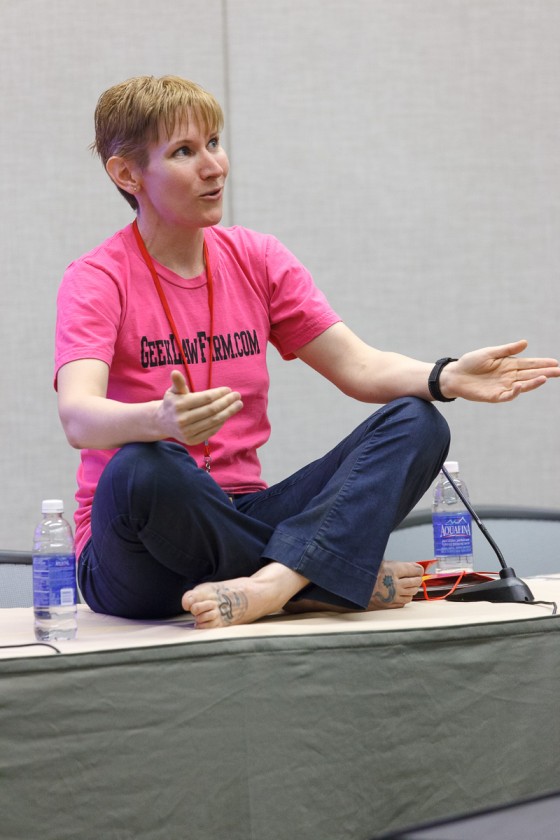
I regularly receive emails from prospective clients who explain the gist of the situation they’re in followed by, “Do I have a case?” A variation of this email is the prospective client who sends me a small section of a contract they signed and a short summary of the situation they’re in and then they ask if I can help them obtain a specific outcome. Some prospects specifically say that they don’t want to hire me, not even for a consult, unless I say they have a case.
Here’s the Deal
I can’t give anyone a guarantee about the outcome of a legal matter based on an email. If the law were that easy, we wouldn’t need lawyers.
In any situation, I have to examine:
- The parties involved,
- Which law applies – statues and case law, and
- What actually happened
before I can say whether you have a case.
I can’t give effective legal advice without all the pertinent information. I can’t evaluate a contract based on a single provision. I have to read the whole thing. To not do so would likely be unethical and potentially worthless to you.
There is one caveat to this. If I’m talking with a person who wants my help, but it sounds like they need someone other than a lawyer, I’ll tell them that. Whenever I deal with someone who’s experiencing online harassment, I tell them that they may have a situation that should be handled by law enforcement. If they still want to meet with me, I warn them that this may still be my recommendation at the end of the hour.
I Don’t Want to Pay to be Told I Don’t Have a Case
I get that people don’t want to take the time or spend the money to meet with a lawyer to be told they don’t have a case. But if you want a lawyer to analyze your situation, part of what we do for a living is that analysis.
Maybe it would make sense to look at this situation using a medical doctor instead of a lawyer. I’ve never heard of anyone going to the doctor with the sniffles and saying they didn’t want an appointment unless the doctor said they could make the person better. That’s ridiculous. Some illnesses don’t get better, and some are things like the cold virus that just has to run its course.
I don’t like telling my clients that they don’t have a case anymore than they don’t want to hear it, but sometimes that’s the case. The fact that you’re upset does not mean that you have been legally harmed. Until I actually look into the person’s matter, there’s nothing I can tell a prospective client except “Would you like to schedule a consultation?” or something to that effect.
Yes, I Charge People to Talk to Me
If you’ve ever called my office phone, you know my outgoing message says don’t leave me a voicemail, send me an email. I do this for a few reasons:
- Unless it’s an expected call, I rarely answer my phone. When I’m working on a client’s matter, I don’t want to be distracted or interrupted. I’ve also turned off the ringer on my office phone. I won’t notice the call coming in unless I happen to be looking at the screen and see it change to the incoming caller’s number.
- When you leave a voicemail on my phone, a little red flashy-flashy light goes off until I deal with the message. It annoys the crap out of me. (Pro tip: Don’t annoy your lawyer.) It forces me to divert my attention away from focusing on my client, deal with the message, and then take extra time to pick up where I left off on my client’s matter.
- If the call is from a prospective client, they usually want to tell me their whole story before asking for help. This is what the consultation is for, and no, I don’t do free consults.
Sometimes all a person needs is a consultation. I’m happy tell people how they can help themselves in a situation, and I have no problem providing recommendations that are mindful of the person’s budget.
A few years ago, someone called me and they were incredulous when I said that they had to pay to talk to me. Listening to, analyzing, and providing information and advice on a legal situation is what I went to law school to do. This is my profession. If you want to hear my perspective on your legal situation, you have to pay for that privilege. (There are lawyers who do give free consults. I am not one of them.)
I wish there were more guarantees in the legal profession. Just this week, I reminded a colleague that our job is to present the best case for our client and advocate on their behalf, but the ultimate decision in the matter is left to another authority.
Thanks for reading this post. If you liked this post and want to know more about my work, please subscribe to the Carter Law Firm newsletter where I share behind-the-scenes information and readers get exclusive access to me.



![TransparencyCamp 2012 - #tcamp12 social network graph [1/2] by Justin Grimes from Flickr (Creative Commons License)](https://carterlawaz.com/wp-content/uploads/2014/08/network-560x257.jpg)


